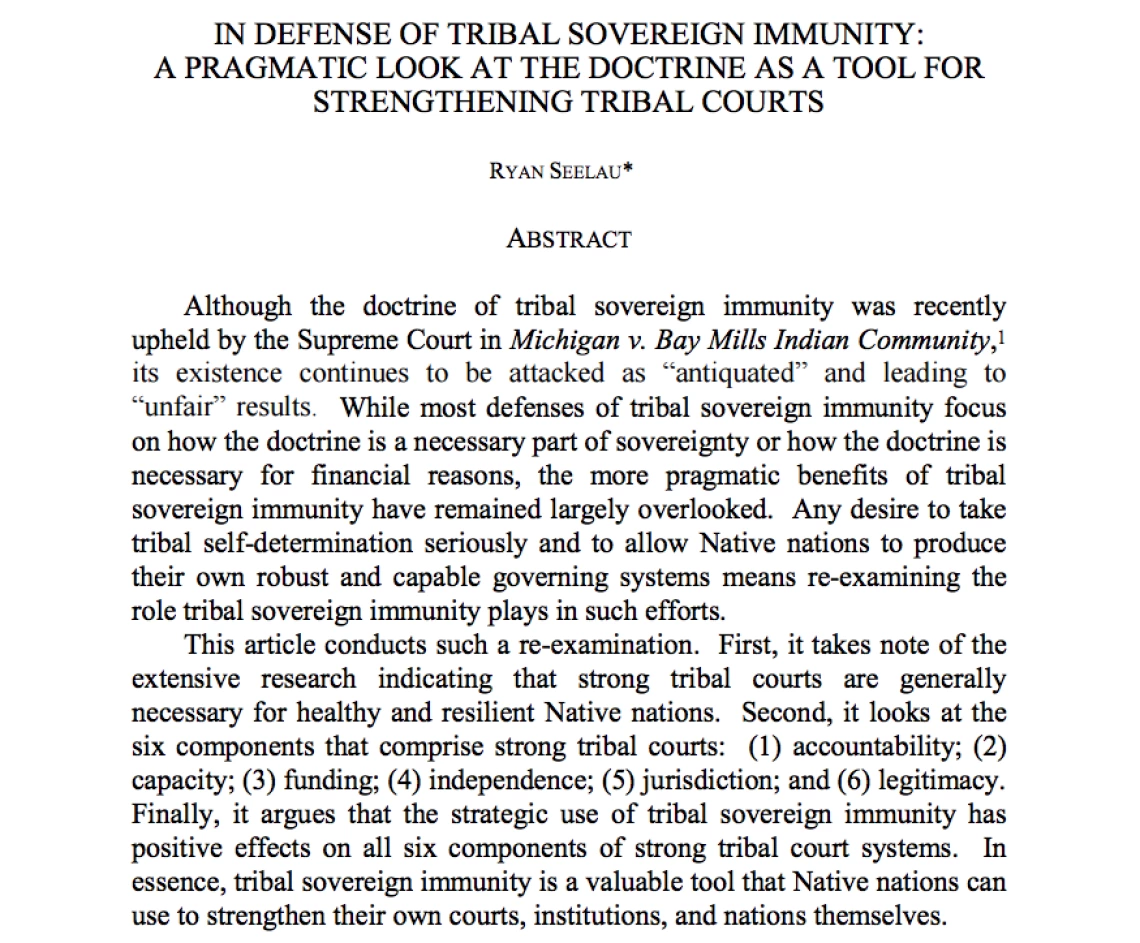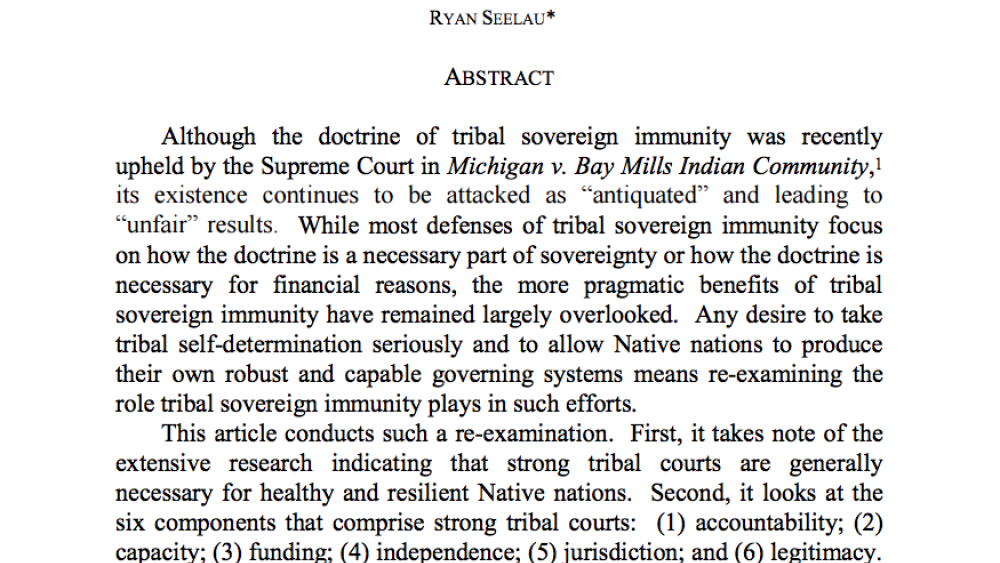Although the doctrine of tribal sovereign immunity was recently upheld by the Supreme Court in Michigan v. Bay Mills Indian Community, its existence continues to be attacked as antiquated and leading to unfair results. While most defenses of tribal sovereign immunity focus on how the doctrine is a necessary part of sovereignty or how the doctrine is necessary for financial reasons, the more pragmatic benefits of tribal sovereign immunity have remained largely overlooked. Any desire to take tribal self-determination seriously and to allow Native nations to produce their own robust and capable governing systems means re-examining the role tribal sovereign immunity plays in such efforts.
This article conducts such a re-examination. First, it takes note of the extensive research indicating that strong tribal courts are generally necessary for healthy and resilient Native nations. Second, it looks at the six components that comprise strong tribal courts: (1) accountability; (2) capacity; (3) funding; (4) independence; (5) jurisdiction; and (6) legitimacy. Finally, it argues that the strategic use of tribal sovereign immunity has positive effects on all six components of strong tribal court systems. In essence, tribal sovereign immunity is a valuable tool that Native nations can use to strengthen their own courts, institutions, and nations themselves.
Additional Information
Seelau, Ryan. "In Defense of Tribal Sovereign Immunity: A Pragmatic Look at the Doctrine as a Tool for Strengthening Tribal Courts." North Dakota Law Review. Vol. 90:121. 2014. Article. (https://commons.und.edu/cgi/viewcontent.cgi?article=1144&context=ndlr, accessed July 21, 2023)


